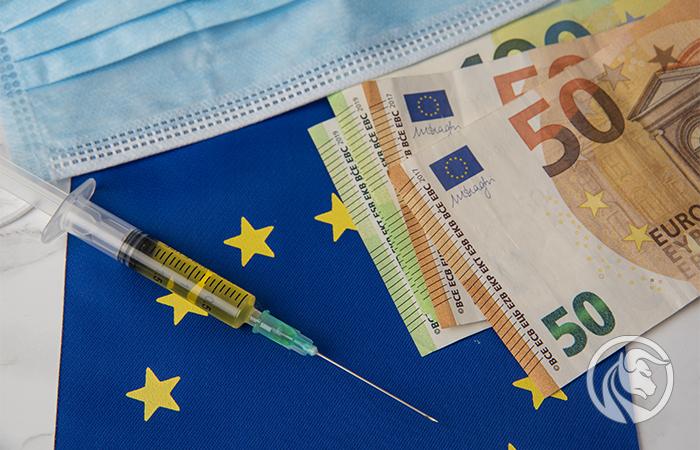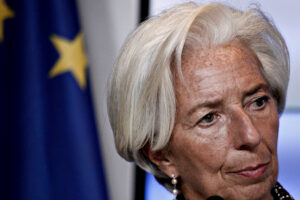Divided Europe: the fight for loans and subsidies
The European Commission is today presenting a revised long-term draft EU budget and economic recovery plan. It is unclear whether this plan will directly draw inspiration from a Franco-German initiative announced last weekwhich the Commission has initially supported.
- It is anticipated that final agreement will be reached at the European Council meeting on 18-20 June.
- The economic recovery plan may include the allocation of billions of euros to promote the circular economy and ecological transformation. According to the working documents, the funds for hydrogen energy can be doubled to EUR 1,3 billion, and in the next ten years the Union may allocate up to EUR 10 billion for the development of this technology. For the automotive industry, the Commission may propose an EU program for buying green vehicles, which could amount to around EUR 20 billion over the next two years, and which would go beyond national initiatives (such as the one adopted yesterday in France).
About the Author
 Christopher Dembik - French economist of Polish origin. Is a global head of macroeconomic research at a Danish investment bank Saxo Bank (a subsidiary of the Chinese company Geely serving 860 HNW customers around the world). He is also an advisor to French parliamentarians and a member of the Polish think tank CASE, which took first place in the economic think tank in Central and Eastern Europe according to a report Global Go to Think Tank Index. As a global head of macroeconomic research, he supports branches, providing analysis of global monetary policy and macroeconomic developments to institutional and HNW clients in Europe and MENA. He is a regular commentator in international media (CNBC, Reuters, FT, BFM TV, France 2, etc.) and a speaker at international events (COP22, MENA Investment Congress, Paris Global Conference, etc.).
Christopher Dembik - French economist of Polish origin. Is a global head of macroeconomic research at a Danish investment bank Saxo Bank (a subsidiary of the Chinese company Geely serving 860 HNW customers around the world). He is also an advisor to French parliamentarians and a member of the Polish think tank CASE, which took first place in the economic think tank in Central and Eastern Europe according to a report Global Go to Think Tank Index. As a global head of macroeconomic research, he supports branches, providing analysis of global monetary policy and macroeconomic developments to institutional and HNW clients in Europe and MENA. He is a regular commentator in international media (CNBC, Reuters, FT, BFM TV, France 2, etc.) and a speaker at international events (COP22, MENA Investment Congress, Paris Global Conference, etc.).
Loans and subsidies as a recovery plan
On the weekend, the "thrifty four" published an unofficial document characterized by intellectual laziness and, in principle, proposing the granting of one-off two-year emergency loans. The only point of contact between France and Germany and the document "Thrifty four" was to link the economic recovery plan to the multiannual financial framework. However, it seems that in the last hours the position of the countries most opposed to the idea of strengthening European solidarity has changed. Both Denmark and Austria seem to be willing to compromise on the future EU budget and recovery plan. The Danish Foreign Minister suggested that his country would participate in the negotiations in a way "constructive" and will strive to "Reasonable" i "Righteous" compromise. In turn, the Austrian Finance Minister considered the possibility of combining grants and loans, stating that "EU assistance will be able to take the form of direct payments to some extent". Optimism was also raised by the conservative German daily FAZ, which on Monday in a surprising twist de facto confirmed the small fiscal transfers:
"This is not the time to force countries to pay for past mistakes. It's time to help each other. The future of the EU depends on whether we are all going in the same direction. "
This is a very clear signal that Chancellor Merkel's persuasiveness speaks quite well to conservative German elites.
Too early optimism
However, it is still far too early to celebrate success - the diplomatic battle between France and Germany on the one hand and the "frugal four" on the other hand is probably not over yet. The project that the Commission will present will usher in a new phase of intensive political fairs between Member States that can lead to a final agreement at the earliest at the next June European Council. Opposition to the Franco-German initiative is expressed not only by Northern European countries, but also by Eastern European countries, which have so far belonged to the largest beneficiaries of EU funds and are therefore reluctant to redirect these funds to the south.
Even if there are encouraging signs that support for European solidarity and fiscal union is growing, it is too early to predict the outcome of negotiations between Member States. The only thing that is certain is that Europe is again losing valuable time needed to fight the crisis. While Singapore yesterday unveiled its fourth economic recovery plan since the outbreak of the pandemic, Europe has not even managed to agree on the final terms of its first recovery package.
After a decade of analyzing systemic risk and financial / macroeconomic side effects, EBC managed to avoid a liquidity crisis and a financial crisis. We anticipate that the central bank will maintain a preventive approach and will announce a further policy easing at the June meeting in the form of an EUR 500 billion extension of the Pandemic Emergency Purchasing Program to address the debt caused by coronavirus, as well as an extension of this program until at least September 2021. The ECB may take further steps by increasing the share of supranational debt in the public sector asset purchase program (PSPP), further reducing the interest rate on targeted longer-term refinancing operations (TLTROs), and even buying banks' debts, much like the Fed does through its Main Street mechanism . In our view, the eurozone is six to twelve months behind the United States in terms of accommodation, but it is clear that the current monetary policy cycle will de facto renationalize the sovereign bond market on both sides of the Atlantic. However, in order to be fully effective, the ECB needs a fiscal base - not tomorrow, not the day after tomorrow, but today and now. Europe has already wasted too much time leading political quarrels.






















![Forex Club – Tax 9 – Settle tax on a foreign broker [Download the Application] Forex Club - Tax 9](https://forexclub.pl/wp-content/uploads/2024/02/Forex-Club-Podatek-9-184x120.jpg?v=1709046278)
![Trading View platform – solutions tailored to the needs of traders [Review] trading view review](https://forexclub.pl/wp-content/uploads/2024/03/trading-view-recenzja-184x120.jpg?v=1709558918)
![How to connect your FP Markets account to the Trading View platform [Guide] fp markets trading view](https://forexclub.pl/wp-content/uploads/2024/02/fp-markets-trading-view-184x120.jpg?v=1708677291)
![How to invest in ChatGPT and AI? Stocks and ETFs [Guide] how to invest in chatgpt and artificial intelligence](https://forexclub.pl/wp-content/uploads/2023/02/jak-inwestowac-w-chatgpt-i-sztuczna-inteligencje-184x120.jpg?v=1676364263)


![WeWork – the anatomy of the collapse of a company valued at $47 billion [WeWork, part II] wework bankruptcy story](https://forexclub.pl/wp-content/uploads/2024/04/wework-bankructwo-historia-184x120.jpg?v=1711729561)
![Adam Neumann – the man who screwed up Softbank [WeWork, part AND] adam neumann wework](https://forexclub.pl/wp-content/uploads/2024/04/adam-neumann-wework-184x120.jpg?v=1711728724)





![How to transfer shares to another brokerage office [Procedure description] how to transfer shares to another brokerage house](https://forexclub.pl/wp-content/uploads/2024/03/jak-przeniesc-akcje-do-innego-biura-maklerskiego-184x120.jpg?v=1709556924)

![The most common mistakes of a beginner trader - Mr Yogi [VIDEO] Scalping - The most common mistakes of a beginner trader - VIDEO](https://forexclub.pl/wp-content/uploads/2024/03/Scalping-Najczestsze-bledy-poczatkujacego-tradera-VIDEO-184x120.jpg?v=1711601376)
![Learning patience: No position is also a position - Mr Yogi [VIDEO] Scalping - Learning patience - No position is also a position - VIDEO](https://forexclub.pl/wp-content/uploads/2024/03/Scalping-Nauka-cierpliwosci-Brak-pozycji-to-tez-pozycja-VIDEO-184x120.jpg?v=1710999249)
![When to exit a position and how to minimize losses - Mr Yogi [VIDEO] Scalping - When to exit a position and how to minimize losses - VIDEO](https://forexclub.pl/wp-content/uploads/2024/03/Scalping-Kiedy-wyjsc-z-pozycji-i-jak-minimalizowac-straty-VIDEO-184x120.jpg?v=1710336731)


















